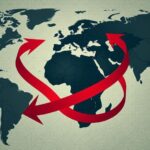Taiwan President Lai Ching-te Takes Decisive Action Against China
Taiwan’s President Lai Ching-te is intensifying actions against Chinese subversion, prompting a military response from Beijing. Critics within Taiwan caution that his approach may aggravate tensions, yet supporters assert that a firmer stance is necessary as diplomatic dialogues between China and the Trump administration unfold. Analyst David Sacks believes this could afford Lai some strategic latitude in confronting China.
Taiwan’s President Lai Ching-te has adopted a more aggressive posture towards China, initiating a campaign against what he describes as increasing Chinese subversion and espionage activities. Following these measures, Beijing responded swiftly with military maneuvers, including a surge of aircraft and naval vessels near Taiwan, while issuing stark warnings about the risks of Lai’s actions.
Despite criticism from his opponents in Taiwan, who argue that he is provoking China, Lai is confident that a firmer stance against Chinese influence is necessary and timely. His supporters maintain that laying down this challenge to Beijing is crucial, although it may escalate tensions internally with Taiwan’s opposition parties.
Analyst David Sacks from the Council on Foreign Relations suggests that Lai believes China will restrain its reactions as it prefers to maintain dialogue with the Trump administration regarding their trade conflict. Sacks posits that this factor might afford Lai some leeway to confront China more decisively at this juncture, as Beijing seeks to avoid complicating negotiations with the United States.
In conclusion, President Lai Ching-te of Taiwan is strategically increasing pressure on China amid growing concerns over subversion. While the response from Beijing has been confrontational, Lai’s supporters argue that now is an opportune moment to assert Taiwan’s stance. The ongoing U.S.-China trade negotiations may provide Taiwan with a unique window to strengthen its position without provoking immediate reprisal from China.
Original Source: www.nytimes.com








Post Comment